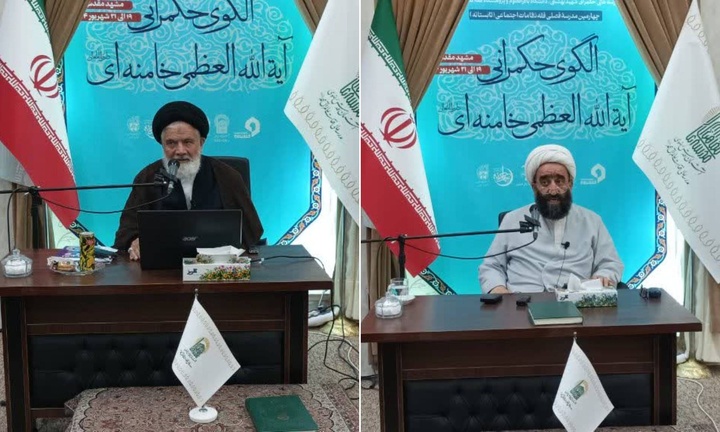The closing ceremony of the 4th seasonal school on jurisprudence of social systems was held under the auspices of the Alem Al-e Muhammad Seminary in Mashhad, northeast Iran.
The event focused on the governance model of the Leader of the Islamic Revolution, Ayat. Seyyed Ali Khamenei, bringing together seminary scholars and experts in Islamic leadership.
Ayat. Mehdi Zamanifard, professor at Mirza Jafar Seminary, presented a framework for cultural governance, emphasizing: “Ayat. Khamenei’s approach places culture at the foundation of all social domains”.
“Governance differs from government, as it involves the practical realization of ideas”, he explained.
Drawing from the Leader’s speeches, he described ideal Islamic culture as rooted in monotheism, spiritual independence, adaptability, and harmony with human nature.
He argued: “Cultural governance must be policy-driven and inclusive, with scholars and the public playing central roles”.
The seminary teacher warned against Western lifestyle models and emphasized the need for gradual, sustained cultural reform. “Education, media, and religious rituals were identified as key instruments in shaping society”.
Elsewhere, Ayat. Seyyed Samsamoddin Ghavami, founder of the Islamic Jurisprudence Foundation for Management, focused on administrative leadership, linking Prophet Muhammad’s migration to Medina with the birth of Islamic governance.
“Rabi al-Awwal, the 3rd month on the Islamic lunar calendar, is the month of leadership and management”, he described.
Ghavami praised Ayat. Khamenei’s nearly five decades of strategic leadership, highlighting: “His resilience in facing crises and foreign pressure is notable”.
He emphasized the Leader’s international organizational reach, noting: “There are trusted representatives in countries such as India, Pakistan, and Iraq. These networks help preserve and promote the values of the Islamic Revolution”.
He also referenced embedded clerical structures within Iran’s military institutions, describing them as safeguards against internal threats.
“Leadership ethics, motivation, and conflict resolution are exemplary; Ayat. Khamenei’s style is rooted in humility, service, and cultural authenticity”, Ghavami discussed.
The seminar concluded with calls for further scholarly engagement to translate and disseminate this governance model internationally, positioning it as a reference for religious leadership across the Muslim world.


Your Comment